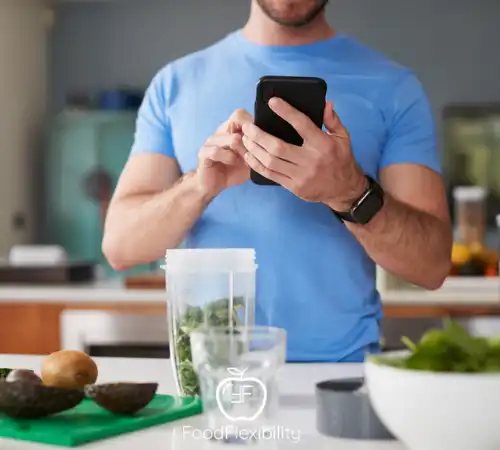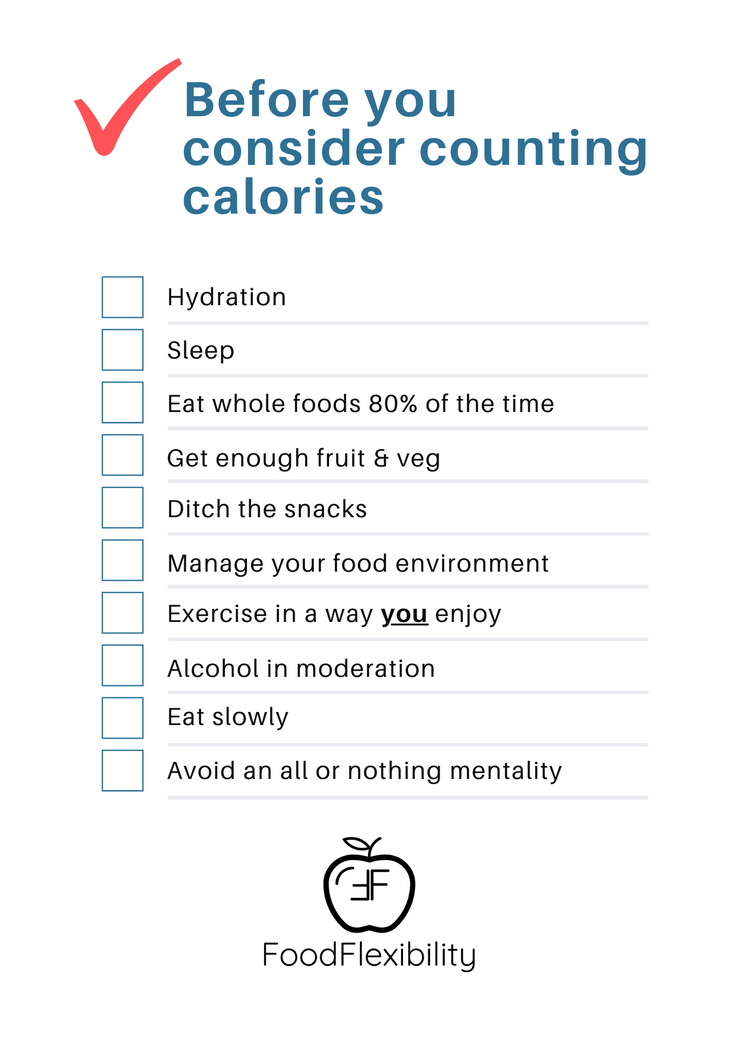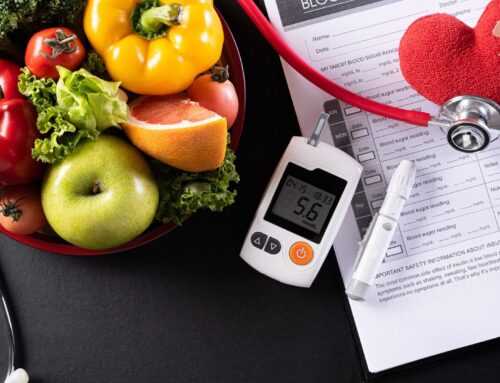Does the thought of counting calories put you off getting started on a weight loss journey?

The good news is that you don’t need to count calories, especially at the start of a health and fitness journey.
Having an idea of the overall calories that you require to achieve your goal is always a great idea and it can be beneficial to understand the calorie content of the foods you regularly eat.
Perhaps the thought of counting calories seems like madness right now, or maybe you just have no interest in turning the meals you enjoy into some kind of maths test.
Adding extra layers of complication to any approach is only necessary if you have first covered the basics consistently over a long enough period of time and you are no longer progressing towards your goal.
Here is a checklist you can use to audit your current habits before you even consider counting calories, let alone how much protein, carbohydrate or fat you are eating.

How well do you currently score on these 10 things?
1. Hydrating yourself properly by drinking enough fluids:
Being thirsty does not feel like the empty feeling in your stomach that you get from true hunger.
Having said that, most people would do well to check that they drink enough fluids throughout the day.
Being dehydrated impaired your decision making, which could lead to poor food choices and the extra calories those choices bring.
So, if you feel hungry then ask yourself when the last time you drank was. Then find something interesting to do for half an hour before asking again if you are still hungry.
Personally, I have a drink and then play my guitar for half an hour.
Water, tea and coffee with a dash of milk, and ’diet’ soft drinks are calorie free or close to. Remember however that latte’s, sugary drinks, and alcohol all contain a fair few calories and won’t fill you up in the same way as a meal does.
How much is enough? I’ve covered that in my blog on how much water should you drink.
2. Getting enough quality sleep
Sleep is so often forgotten when it comes to optimising health and/or weight loss goals. Aim for 7-8 hours of sleep a night:
Avoid your phone or computer/tablet screen for at least an hour before bed. (ideally 2)
Your body regulates your waking and sleeping cycles in response to sunlight. As the light emitted by screens is similar to sunlight your body is stimulated to keep you awake rather than drift off to sleep
Create a relaxing routine for yourself with a healthy dinner.
Wind down before heading to bed at whatever time you need to get those 7-8 hours.
These things all help promote a deeper, more restorative sleep which can positively impact mood, motivation, energy and appetite.
3. Eating whole, natural, single ingredient foods 80-90% of the time
Minimally processed whole ingredients that you cook yourself will always provide less calories than processed food or restaurant meals. This may sound obvious and it may sound boring, but it is true.
That does not mean you can’t enjoy the odd chocolate bar, packet of crisps or beer. In fact, I would encourage you to do so. Just limit these ‘less optimal’ foods to no more than 20% of your diet.
4. Eating enough fruit and veg
Vegetables are low in calories and high in fibre which helps to keep you feeling fuller for longer. Adding a fist size portion to your plate at each meal and eating them first will give you a great chance of eating less calories overall.
Don’t like vegetables? Well you don’t have to love them but you are a grown up. You never know, if you make a conscious effort to eat your greens then you might even start to enjoy them. Try different varieties and cooking methods and see what works for you
Just remember too much butter or oil will bring with it extra calories…
Still need convincing? Vegetables provide a variety of vitamins and minerals, as well as fibre and are essential for bodily function and cellular reproduction.
If you want to start feeling more like your younger self, then eating a diet which is varied, wholesome and rich in as many whole and unprocessed foods as possible will almost certainly ensure that you get all of the nutrients you need to be healthy and thrive.
5. Cutting down on snacking
You will not ‘boost your metabolism’ by snacking to any significant extent.
Most people do not need to worry about plummeting blood sugars from periods of not eating as your body has energy stores it can tap into when food is not available.
If you are getting hungry between meals then re-consider the four points above.
Most of my clients who complain of being hungry between meals are not including enough filling, low calorie foods.
If you absolutely must have a snack then these should be mini versions of what you might usually have at meal times; fruits, meats and vegetable sticks are good options. Dried meats, like biltong, are also useful as a portable snack.
6. Managing your food environment
Eating whilst distracted leads to reduced feelings of fullness and eating more than you intended to.
If you keep certain foods in the house then you will eat them. Consider if these foods support your goal. If they do not support your goal and you cannot eat them in moderation then get them out of the house by donating to your local food bank or other good cause.
A few tips from me:
-
Avoid eating in front of the TV, we all do it now and then but we don’t pay attention to our food when we’re distracted and that makes us overeat
-
Keep a fruit bowl on the counter, keeping it in your eye line makes it the easy choice to reach for
-
Delete Deliveroo or UberEats from your phone, that way you won’t be tempted to reach for a takeaway without having to reinstall the app. You can even reset the password and delete the login details if you need to!
-
Plan what you are going to eat for the week before you shop for groceries. That way you are more likely to buy the ingredients to make the meals that support your goal
-
Get in a few healthy ready meals. These are way more likely to calorie appropriate compared to ordering a stuffed crust meat feast pizza when you forgot to go shopping!
-
If you absolutely ‘must’ have less optimal foods in the house because your children or because other members of the household ‘need’ them then store them inside an opaque container or tin inside a cupboard. Out of sight, out of mind
7. Getting a moderate amount of exercise
Are you finding time to move a little bit every day?
By no means do you have to go to the gym 4 times a week for 2 hours at a time (unless that is what you genuinely enjoy).
You cannot out train a bad diet unless you are incredibly gifted genetically and you have a lot of free time to train and recover properly. If you are reading this article then, just like me, you do not possess such genetic gifts or that much spare time!!
So, can you take a walk at lunchtime, before or after work?
Could you use the stairs and not the lift, can you do a few laps of the garden or even a few air squats whilst the kettle boils at home?
8. Enjoy alcohol in MODERATION
Cutting out alcohol completely is not necessarily warranted, but if you aren’t reaching your goal then moderation is key. This is because:
-
Alcohol contains calories but little nutritional value
-
It lowers inhibitions and can often lead to overeating
-
Over consumption leads to poor sleep and low energy the following day (hangover) which impacts on exercise and general activity levels
The current UK guidelines on alcohol are:
-
To keep health risks from alcohol to a low level it is safest not to drink more than 14 units a week on a regular basis
-
If you regularly drink as much as 14 units per week, it’s best to spread your drinking evenly over three or more days
https://www.nhs.uk/live-well/alcohol-support/calculating-alcohol-units/
If you feel that you need to binge on alcohol at weekends then ask yourself if that is more important to you than your health goal?
I once said to one of my good friends that I was worried my friends would ditch me if I cut down on alcohol to which the responded:
“Tim, that might be the stupidest thing you have ever said”
Real friends don’t care! They will understand and support your goal if you explain it to them.
9. Chew your food and eat slowly
It can take up to 20 minutes for you to feel hungry after you have eaten a meal, try the following at your next meal:
-
Try chewing each mouthful 20 times
-
Put your cutlery down in between those mouthfuls
-
Eat until you feel 80% full because by the time you actually feel full there is every chance you’ll have already overeaten
10. Don’t throw in the towel if you’ve had a ‘bad’ day
Let’s say you’ve just lost your bank card. Would your immediate reaction be to walk into the bank, withdraw all of your savings and throw them in the bin?
Thought not…
So, if you’re having a few drinks and they end up getting out of hand or you end up tucking into an unplanned takeaway then don’t ditch the healthy eating for the rest of the week, try to see it as a bump in the road and return to your usual system the following day.
If you’re struggling with an all or nothing mentality perhaps a nutrition coach could help you (*cough*).
Now, score yourself out of 10 for each of the above steps (with 10 meaning you do this perfectly every day).
Have you scored 70% or below? Then I suggest you address the low scores before you make your approach any more complex.
Need some help applying any of the above to your own circumstances?
Let me know in the comments so I can help you.
Thanks for reading.



